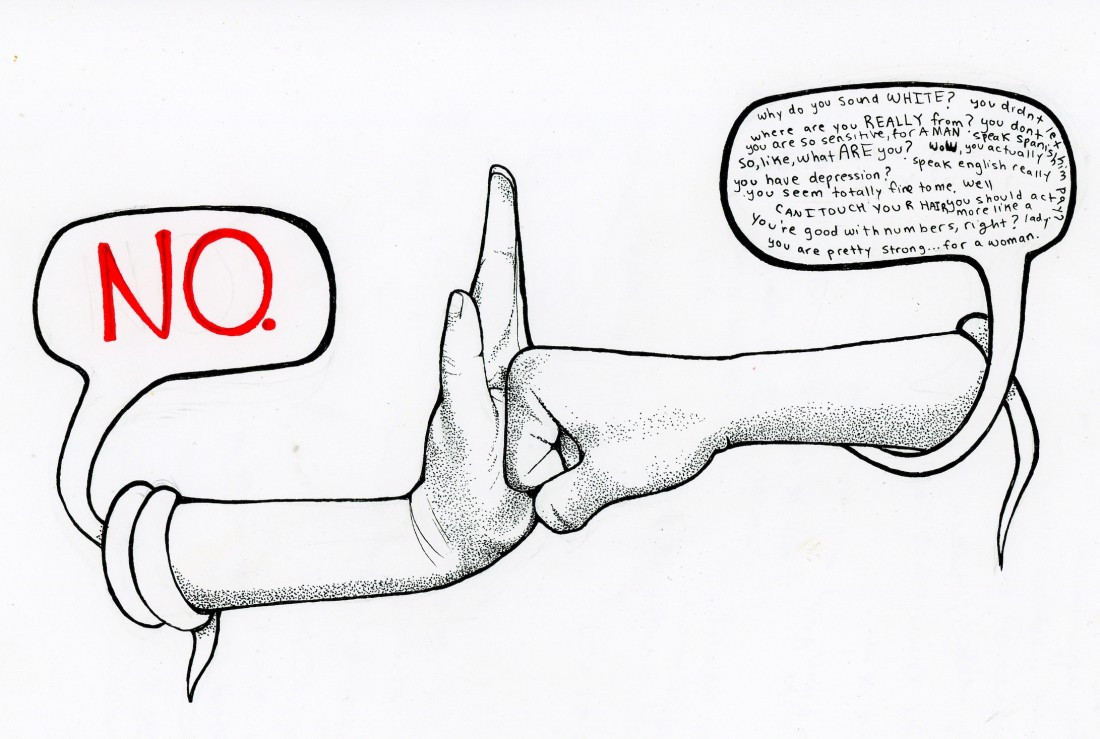Education overpowers racist and ignorant ideology
Working to eliminate deeply ingrained racist beliefs, attitudes and behaviours
From the historical wrongs committed against Indigenous peoples – including the enforcement of residential schools – to current forms of prejudice, discrimination and racial microaggression, both Canada’s history and present beliefs are plagued by systemic racism.
On Jan. 15, Nikki Sanchez, a Maya Pipil woman (indigenous to Central America) was anticipating a photoshoot in New York to highlight sustainable fashion when her flight from Victoria to Vancouver was delayed. After five hours of waiting, Sanchez asked a WestJet employee for assistance regarding her flight and was racially profiled.
What should have been a helpful, positive customer service interaction quickly escalated, as Sanchez alleges the WestJet employee said “you smell like booze” and “I know you guys can’t handle your liquor.”
Sanchez recalled having two drinks during her five-hour wait and was not at all inebriated. She continued to explain her desperation for an alternate flight but was denied access by the employee, who said she was a liability to any airline, including WestJet.
After the incident, Sanchez decided to share her experience on Instagram, Twitter and Facebook, to let people know about the frequent and alarming ways racism surfaces in Canada. She has since received “sincere apologies” from WestJet representatives but hopes they will commit to anti-oppression training for all staff.
Through pervasive stereotypes about alcohol abuse, drug addiction, unemployment and violence in Indigenous communities, colonial belief systems have negatively influenced many Canadians’ present beliefs, attitudes and behaviours toward Indigenous people. These false assumptions about Indigenous people stigmatize and oppress them and contribute to cultures of systemic discrimination in Canada today.
Even after speaking out about the incident, Sanchez’s initial Instagram post received intense backlash. Racist rhetoric was strewn throughout the comment section. Some comments said she pulled the “race card,” while others continued to accuse her of being drunk and high.
I realize through my own conversations with BIPOC that, as much as people try to educate about racism, changing a racist perspective depends on whether the offender is open to understanding and listening rather than judging.
Understandably, confronting a racist can be extremely intimidating, awkward, uncomfortable or, in certain contexts, unsafe. It is unfortunate when a BIPOC expresses their experience(s) about racism, only to be further oppressed. For this reason, many BIPOC may feel the need to stay quiet in order to keep an offender calm and happy.
Overall, discrimination of any sort denies people the opportunity to share their identity with others. Harmful colonial beliefs have been passed on for generations, and people need to understand that stereotyping dismisses the fact that humans are multifaceted beings. It’s difficult to say whether the WestJet employee understands the impact of their actions, but regardless, they need to be held accountable.
I imagine it would be super exhausting for BIPOC to feel they must respectively educate racists, especially if they aren’t respected on any level. Therefore, white people must recognize their privilege and take action to stand beside BIPOC to raise awareness about racial injustices, educate themselves about the impacts of racism and advocate for BIPOC amidst those who racially discriminate.
Tessa Adamski is an aspiring journalist. In November of last year, she completed a project interviewing BIPOC to illustrate the ways racism exists in Manitoba. To read more of her work, follow tessierose-thewriter.com.
Published in Volume 74, Number 20 of The Uniter (March 5, 2020)







